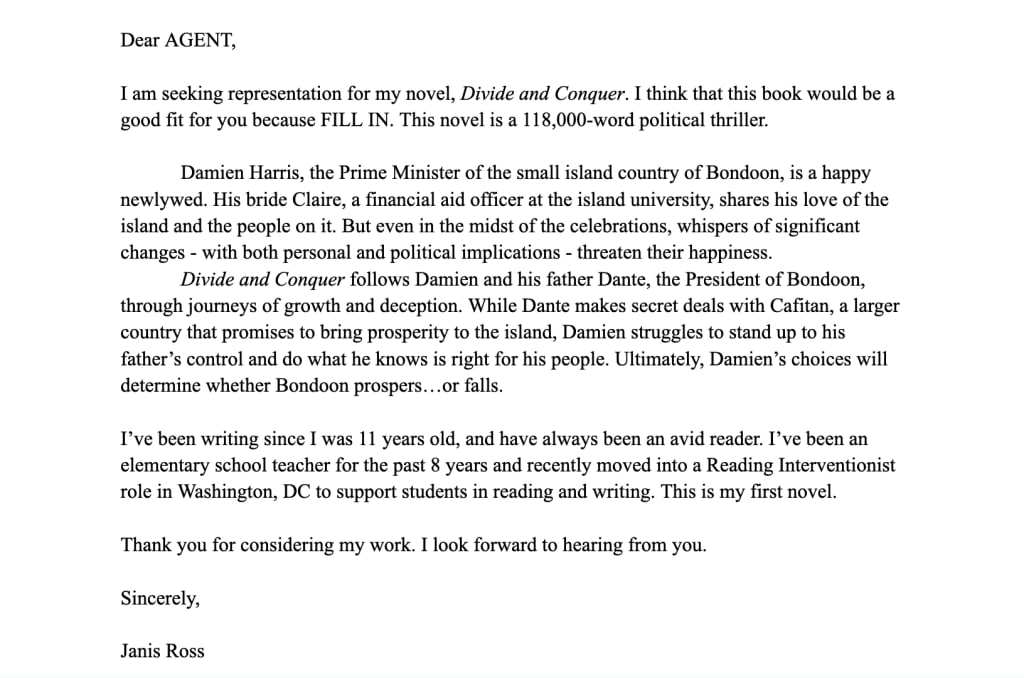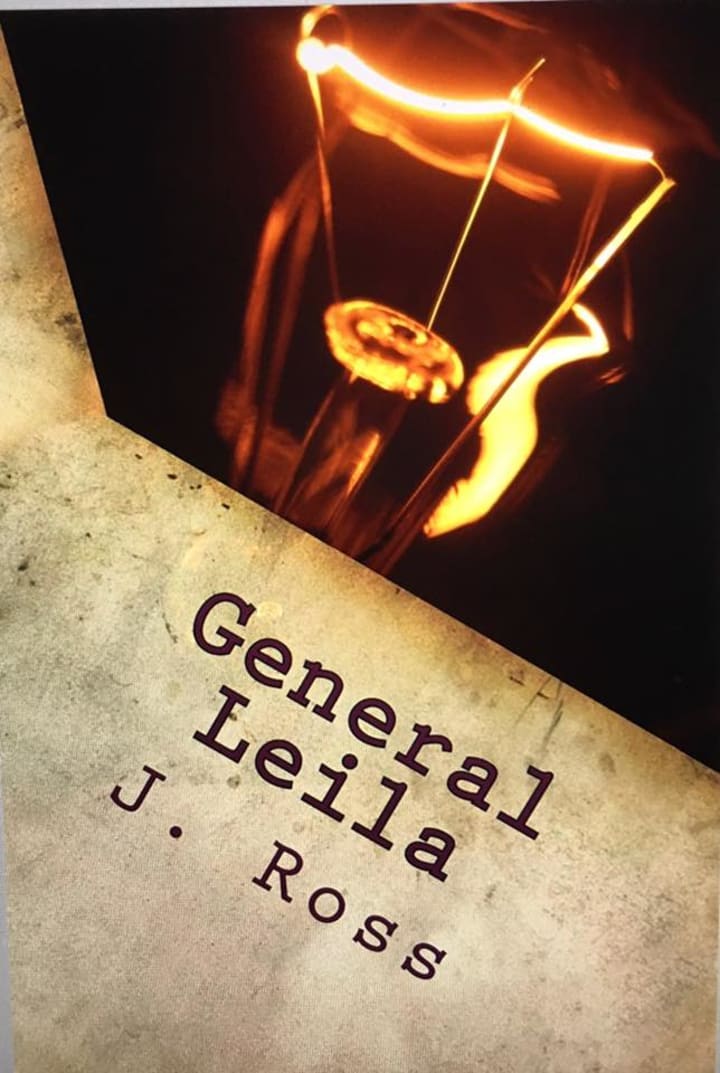Querying, Querying
My Pitfalls of Publishing

Query = a question; an inquiry.
= an inquiry from a writer to an editor of a magazine, newspaper, etc., regarding the acceptability of or interest in an idea for an article, news story, or the like; usually presented in the form of a letter that outlines or describes the projected piece. - Dictionary.com
Though this post is about getting published, more aligned with the second definition, the first definition also describes how this process has made me feel about my skills as a writer.
Ever since I wrote my first story at 11, I've been fostering a dream of becoming a published author. I learned some years ago to call myself an author because waiting for publishing to validate your talent will leave you depressed and wanting to give up. But publishing has been the goal, being able to share my work with more than just my friends and family.
In 2017, fresh off of rewrites from a novel I'd written the first draft of in my senior year of high school, I decided to search for publishers. Considering that I didn't know much about the industry, I just started googling to see different publishers and options. I didn't know back then that what I was doing was the first step of querying - trying to convince publishers that my book was worth publishing and that people would read it.
After a few tries, I was delighted that three different publishers had responded and wanted to publish my novel. My circle was excited and proud of me, and I was on cloud nine. However, I soon learned that I narrowly avoided the trap that many new authors fall into - vanity publishers.
You see, after speaking to agents from the publishers, I found that all of them wanted an upfront cost in addition to a portion of sales after my book had sold. I was told that it was pretty standard practice, and the cost would cover editing, cover design, layout, and marketing. At first, I mentally started considering what money I had and how I would make it work. But a friend mentioned how strange it seemed that they would want payment when it was my work that they needed, and it stuck with me.
When I read the contracts that were sent over (in case you didn't know, I read contracts and staff handbooks with a fine-tooth comb) I saw that the costs that they were charging me were more than I could afford - and the risk of the book not selling well and me being in debt to them didn't sit too well with me, either.
So I declined their offers and set my sights on a different avenue that I had found during my search - self-publishing.
I was still very new to the publishing world, but I did my research and found that I could self-publish through Amazon for free, only paying a portion if I printed physical copies. So I edited and re-edited, formatted, and found free cover art, then ordered a proof copy to see what the finished product would be.
The feeling of holding a book with my name on the cover and my words inside was a feeling I've been chasing ever since. I was so excited and eager to put the book up for sale and get my story out into the world.

I didn't have a clue how to market it, but more Google searches led me to create my own Facebook author page. I trained myself to post every day; snippets of the novel or fun writing facts, or a since-abandoned blog. I also ran giveaways, both on Facebook and on Amazon.
To this day I still have family and friends who have copies of the book - my first boss, my teacher mom and her daughter who also read it and continues to ask when I'm going to start writing full-time. My Dad, who doesn't read much, proudly told me that he read it in about two months and loved every minute of it. My mom wrote my first (and, if I recall, only) review on Amazon. Even a cousin that I saw at my grandmother's funeral introduced me to her children by saying, "She's the cousin who wrote that book!"
Sales never really took off - I knew not to expect much from a self-published debut novel, but I had hoped for better than I got. Then my two closest friends read it and gave me a wake-up.
These two friends are the type who would rather tell you the truth so that you can get better rather than let you be embarrassed in front of strangers. They've always given it to me straight, and they didn't hold back for this novel. They pointed out flaws in editing and, more importantly, flaws in the plot. It took me a while to objectively look back and see what they were talking about (I do have a sizable ego, after all). But once I did, I saw that they were telling the truth and took the book off of Amazon.
I did complete rewrites, and the story is stronger now than it's ever been. I have plans to republish it one day, but it's not currently my focus. I keep a copy in my classroom to use as an object lesson for my students - reminding them that going too fast can end up ruining a good thing.
Now, for those of you who don't know, the writing community tends to fall between two extremes when it comes to writing - plotters and pantsers. Pantsers, well, they write by the seat of their pants. No strict outline, just going off of vibes. Plotters are those who have a plan for every scene, backgrounds for all of their characters, etc. For the longest time, I was a pantser. I never knew exactly where I was going, just had one scene in mind that I'd dreamt about and tried to write a story around. That is the reason that my google drive is a graveyard of unfinished stories that taper off to nothing.
As I got older and more experienced, however, I realized that not knowing where the story was going to end and how to get there was hurting me. So I decided to try plotting. I didn't strictly write out everything that was going to happen but wrote a paragraph for each scene. Somehow that led to finishing the first draft of Divide and Conquer in a year, something I'd never done before. Another year and I'd edited, revised, and edited some more.
After my bestie read through and gave suggestions, she suggested that I get a beta reader - someone to read the manuscript and give feedback on the story elements without personal bias. I'd heard about these on the writers' Twitter feeds as well, and decided to go for it. I found a few readers for reasonable prices and was pleased to get extremely positive feedback from them.
So now it was time to start officially querying.
I had done lots of research on the process, finding advice, templates for query letters, and things to consider when finding an agent. The biggest hurdle for me, honestly, was that Divide and Conquer was a political thriller, completely deviating from my standard fantasy/action writing and reading standards. Shoot, the only political thrillers that I'd read were John Grisham novels, mostly because we graduated from the same university. So I found myself ill-equipped to suggest comparable titles or how to spin my story to an agent.
I did my best to make it work, though; I've sent out several queries, adjusting for each submission and diligently writing down when I submitted and if I received any response. I knew that querying was going to be a long haul, and I needed to be patient. After all, as one of my teachers in college said about auditioning for theatre: "If you don't get a part, it doesn't mean that you're a bad actor. It just means you weren't right for the part."
Sometimes I would get a canned response declining; rarely I would get feedback on how to improve my query. My submission frequency declined during all of my health issues and hasn't really gotten back up to speed. But recently I've decided to take a different turn.
When I first self-published, I was so inexperienced and overeager to get published that I didn't take proper steps to set myself up for success. But now, the self-publishing world - really, the writing world - has changed dramatically. Self-published books are seen as being much more legitimate, and can even lead to deals with publishing companies.
Marketing is easier too with the rise of "booktok" and other social media forums where people give feedback, recommendations, and just generally enjoy talking about books and connecting with other people who like books.
Did I mention my bestie has a "booktok?"
In the coming months, I plan on starting my own "booktok" and taking the steps to self-publish; hiring an editor and a cover designer, and uploading and formatting. I'm nervous about it, but I feel far more prepared now than I used to be. My querying for publishers is going on pause, but I'm happy to say that my query about my talent as a writer has been answered. I know that I'm an amazing writer, and I will only continue to get better the longer that I write.
Hopefully, you'll see Divide and Conquer on your shelves and e-readers soon!
About the Creator
Janis Ross
Janis is a fiction author and teacher trying to navigate the world around her through writing. She is currently working on her latest novel while trying to get her last one published.






Comments (1)
i found your book!! it's $12 on book life :)